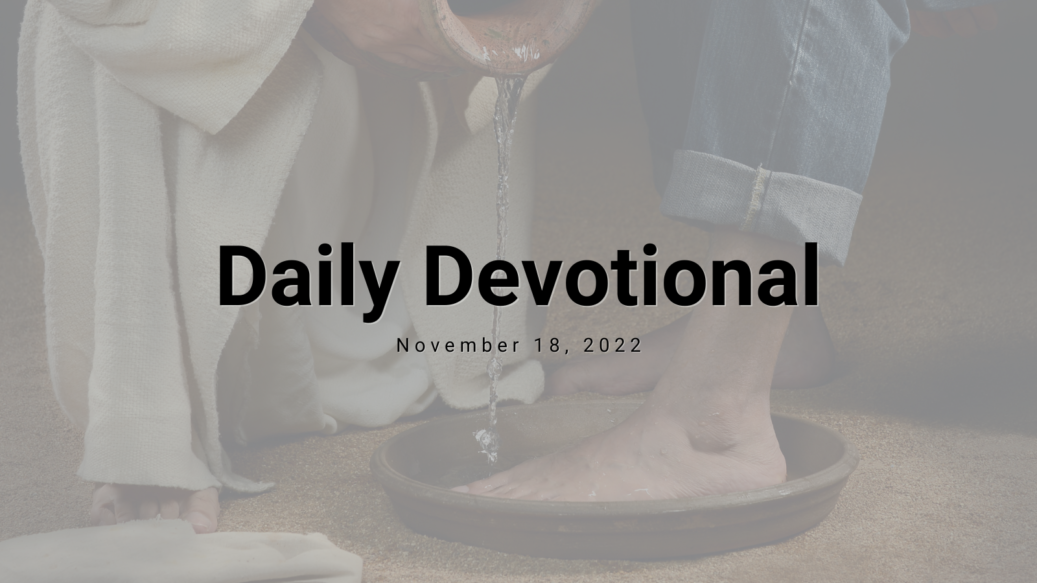Theme of the Week: Servant Leadership
Bible Verse: So he got up from the table, took off his robe, wrapped a towel around his waist, and poured water into a basin. Then he began to wash the disciples’ feet, drying them with the towel he had around him. After washing their feet, he put on his robe again and sat down and asked, “Do you understand what I was doing? You call me ‘Teacher’ and ‘Lord,’ and you are right, because that’s what I am. And since I, your Lord and Teacher, have washed your feet, you ought to wash each other’s feet. I have given you an example to follow. Do as I have done to you. John 13:4-5, 12-15 NLT
Scripture Reading: John 13:1–30
In the days before His death, Jesus shared a last supper with His disciples. He chose this time to give them one last (dramatic) lesson on serving. He washed their feet! Washing the feet of guests was a common cultural practice at this time, but it was a task performed by the house servant. Jesus was Lord and Teacher, but that didn’t stop Him from sharing a lesson about servanthood one more time.
In this last supper story, Jesus demonstrated:
- Serving is about putting love in action, even for those who don’t fully understand it. Jesus continued with the foot washing task even though they tried to talk Him out of it and even though they didn’t all deserve it (Judas would betray Him just hours later).
- Serving is about making personal, close contact with people. You can’t serve well from a distance. Somebody must reach out and give a hand, not just send thoughts and prayers.
- Serving is about what others need, not what you want. Foot washing was dirty work (literally). Foot washing was also smelly work. Foot washing required careful work. Jesus didn’t do this for His benefit, but for theirs.
- Serving is about humility – not recognition, titles, position, or prestige. Jesus was God in the flesh, their Lord and Teacher, and soon to Saviour…yet He provided what “they” needed. What they needed at that moment, was their feet washed. Jesus took off His outer robe (just like a servant would) and knelt before the disciples – and served them.
Jesus concluded His task and then directed them to do the same for each other in the future. They were to wash “each other’s feet”.
To obey Jesus’s instructions, we must be found serving “each other”, even if it’s a humble task. The example of foot washing may not be culturally apt for us today as a literal practice, but the symbolism remains powerful. This is what selfless servant leadership looks like up close.
Prayer: Father, help me learn from Jesus what true servanthood looks like. I am willing to humble myself and serve other people’s needs. Use me to love people up close and put love in action, even in the most challenging and humble tasks.
Reflection: How well do you love and serve people up close? Does your pride or status keep you from serving those God has put around you? In your local church, do you ever take care of the dirty work that no one else is willing to do?
Copyright © 2022 Impactus | Promise Keepers Canada. All rights reserved.
About


